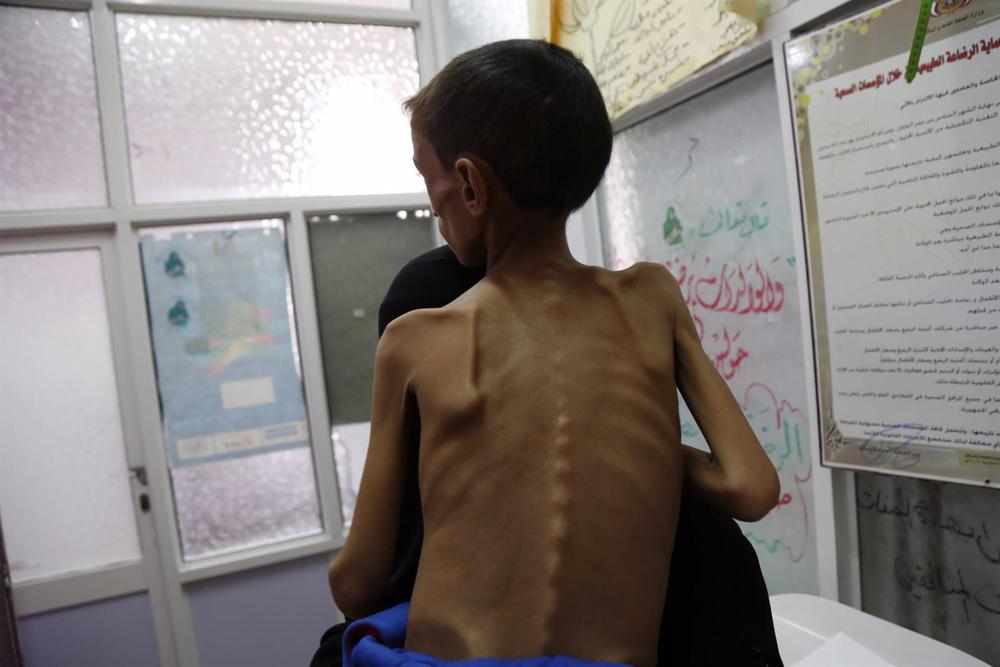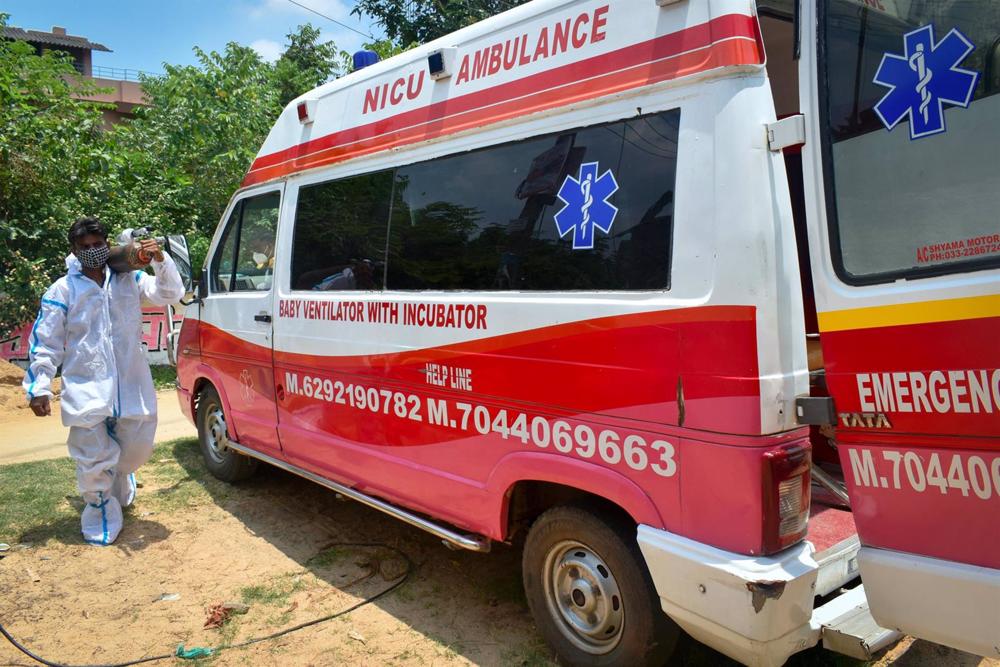
The non-governmental organization Doctors Without Borders (MSF) warned Tuesday of an increase in child malnutrition in Yemen over the past year and stressed that the crisis «is causing preventable deaths,» especially in children under five years of age.
The NGO has pointed out that between January and October 2022 it treated more than 7,500 children with malnutrition, 36 percent more than in the same period in 2021, and explained that malnutrition rates usually peak in Yemen between June and September.
He said that during this year there has been an early onset of the peak of malnutrition, between April or May, and added that it is expected to continue until December, stressing that the increase is «worrying».
In this regard, he stressed that the number of severely malnourished children needing to be admitted for care has exceeded the capacity of several MSF centers, requiring emergency interventions in some locations to treat the increase in cases of acute malnutrition and related health complications, such as diarrhea, pneumonia and anemia.
Specifically, MSF teams at Al Salam hospital in Amran province have observed a steady increase in the number of patients with severe acute malnutrition since the end of May. Thus, the bed occupancy rate at the intensive therapeutic nutrition center reached 396 percent in September.
He also noted that a general trend has been observed at Abs General Hospital in Hajja, where between January and September the hospital’s intensive therapeutic nutrition center, supported by MSF, admitted 2,087 children with malnutrition and associated medical complications. Most of the patients were between 6 and 23 months of age.
Separately, MSF has scaled up the response in Hodeida province to address the «dramatic increase» in acute malnutrition cases in Ad Dahi district. To this end, it has set up a 70-bed therapeutic nutrition center and facilitated free referrals from health centers to hospital for malnourished children under the age of five, with 282 patients with malnutrition complications admitted during the month of November alone.
The NGO has stated that malnutrition is a constant risk to children in Yemen and that the country experiences seasonal peaks each year, usually related to the lean season caused by the disruption of agricultural production in rural areas.
AGGRAVATION OF THE CRISIS BY THE WAR Thus, it has emphasized that while this pattern was already observed before the outbreak of the conflict in late 2014, it has worsened due to the direct and indirect effects of the conflict, which have exacerbated food insecurity for people who were already vulnerable.
Factors that have contributed to the increase in child malnutrition include the poor living conditions of people who have been displaced by the war, reduced purchasing power due to the economic crisis and high inflation, the general deterioration of health services and the difficulty in accessing existing ones.
In addition, funding cuts this year have caused primary care centers to suspend services or not have sufficient supplies of medicines, while difficult access to health care causes many sick people to wait hours before going to the doctor with the consequent risk.
MSF has specified that between January and September, 31 children died of malnutrition after being admitted to Al Salam hospital, while lamenting that the availability of prenatal and postnatal care, which is directly related to malnutrition, is very scarce in the country.
At Abs hospital, MSF found in 2021 that only one in 10 of women who gave birth at the hospital had attended at least one antenatal care consultation. In 2022, more than half of the mothers in the maternity ward of Abs hospital were suffering from malnutrition.
She has therefore called for a comprehensive response to strengthen the scope and effectiveness of nutritional surveillance across the country and specified that gaps in primary health care facilities need to be addressed to ensure rapid access to care and to help raise community health awareness to detect early signs of malnutrition.
Source: (EUROPA PRESS)






